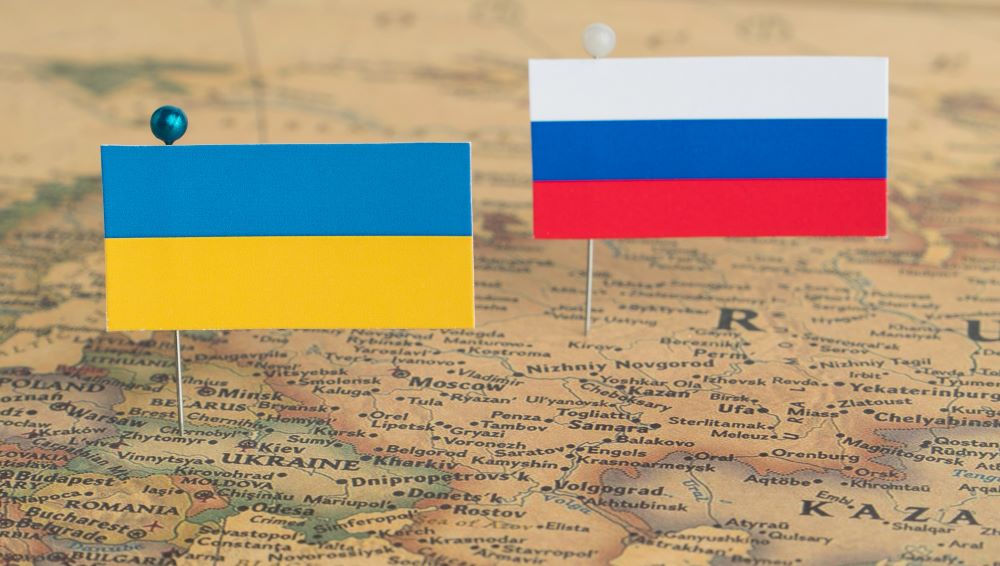
The Russian invasion of Ukraine has long since past its one-year anniversary and rightly continues to command headlines, particularly over its impact on international trade. Supply chains remain threatened, and sanctions continue to hammer the Russian economy.
Here, the IOE&IT Daily Update rounds up the latest news on the ongoing War in Ukraine
China/Russia
Chinese premier Xi Jinping completed a three-day visit to Russia this week, holding set-piece discussions in Moscow, where he and Russian president Vladmir Putin exchanged friendly words and sought to shoe off the strength of their shared diplomatic relationship.
China had proposed a peace plan that was welcomed by Moscow, but which has been criticised by western officials as effectively allowing Russia to keep Ukrainian land.
However, the FT noted that Jinping did not confirm a pipeline rerouting Russian gas exports to Asia and held off on other concrete agreements in favour of warm words.
Experts argued that the visit underscored how the relationship has shifted, with Jinping now firmly the senior partner to Putin’s more junior role.
Diplomatic games
As part of a countermove against Jinping’s visit, Japanese prime minister Fumio Kishida made a surprise visit to Ukraine to emphasis his country’s support for the eastern European nation.
Kishida met with Ukrainian president Volodymyr Zelenskiy in Kyiv on Tuesday (21 March), becoming the last of the G7 national leaders to visit the war-hit country.
In another reaction to the Chinese premier’s visit, Spanish PM Pedro Sanchez announced his plans to travel to Beijing, where he is expected to reinforce G7 demands that Ukraine establish the terms of its own peace deal with Russia.
Sanchez, who comfortably saw off a vote of no confidence in his government recently, said: “It’s important to know first-hand what his position is on peace in Ukraine, and to tell him that it is the Ukrainians themselves who will lay down the conditions for the beginning of this peace, when it arrives”.
Black Sea grain deal
It was announced on Saturday (18 March) that the agreement allowing grain and other foodstuffs to be safely exported from Ukraine had been extended for another 60 days.
The UN- and Turkish-backed initiative was only renewed for half the intended period, reports Reuters, as the Russian government proved unwilling to commit to the full period.
Putin stated that he could halt the deal if his conditions aren’t met, noting that Russian exports of grain and fertilizer are not fully covered by a parallel deal.
Russia had previously withdrawn from the agreement for a few days before U-turning towards the end of last year.
EU sanctions
Hawks within the EU are pushing for a further package of sanctions aimed at crippling the Russian war effort.
According to EUObserver, Estonian foreign minister Urmas Reinsalu called for negotiations to start on the eleventh package of sanctions, with France and Romania also supporting the efforts.
Those in favour of this approach have argued that the measures should include ‘secondary sanctions’ against people who are helping Russia circumvent existing sanctions.
As reported by Deutsche Welle, a number of trade experts have pointed to exports to third-party nations such as Armenia, Kazakhstan and Kyrgyzstan as being behind the Russian efforts to evade sanctions.
For its part, Kazakhstan has stated that customs authorities will begin monitoring goods that enter its territory for re-export elsewhere, according to the FT.
JCCC
The Joint Customs Consultative Committee (JCCC) released details of the impact of the UK government’s own sanctions regime.
The HMRC-sponsored forum – of which the Institute of Export & International Trade is a member – provided an update on 16 March.
According to the update:
- Over 1,500 individuals and 140 entities have been sanctioned so far.
- The sanctions have hit over £20bn worth of UK-Russia trade in goods.
- £18bn worth of Russian assets remain frozen.
Further bans on imports and exports are expected to come into effect at Easter, targeting items found on the battlefield and as well as transactional legal advisory services.
As part of the update, the JCCC cited economic data showing that the Russian economy was still struggling from the impact of sanctions, albeit not as heavily as first anticipated, and is finding it increasingly difficult to maintain its war effort.



